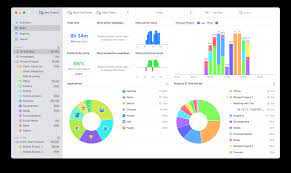
In an ever-evolving business landscape, small to medium-sized businesses (SMBs) must contend with a multitude of challenges to stay competitive. Among these challenges is the effective management of time — both in terms of tracking the time spent on various projects and utilizing that information to improve efficiency and profitability. A project time tracking system can offer a powerful solution for SMBs by providing valuable insights into employee productivity and project costs.
A project time tracking system enables businesses to record the amount of time employees spend working on different tasks and projects. This data is crucial not only for billing clients accurately but also for internal assessments concerning project performance and resource allocation.
Here are essential aspects to consider when implementing a project time tracking system:
1. User-Friendly Interface: Choose a system with an intuitive interface that doesn’t hinder daily operations. Employees are more likely to use tools that are simple and require minimal effort to understand.
2. Integration Capabilities: Your time tracking system should integrate seamlessly with other tools your business uses, such as project management software, accounting systems, or customer relationship management platforms.
3. Real-Time Tracking: For accurate data collection, select a system that offers real-time tracking. This ensures that you capture every minute spent on a project as it happens.
4. Mobile Access: In today’s mobile world, having access from any device is crucial. Pick a solution that offers mobile apps or mobile-friendly web access so your team can enter their time from wherever work takes them.
5. Customizable Reports: The ability to customize reports is vital for analyzing data in ways that are most beneficial for your specific business needs.
6. Data Security: Protecting sensitive information is paramount. Ensure the system you select has robust security measures in place.
7. Scalability: As your business grows, so too should your time tracking system. Opt for one that can scale with your business and handle an increasing load without performance issues.
8. Support and Training: Good customer support can make a huge difference, especially during the implementation phase. Comprehensive training resources or personal training sessions can help ensure your team makes the most of the system.
9. Compliance with Regulations: Ensure the system meets legal requirements related to labor laws and data protection regulations relevant to your industry or location.
10. Cost-Effectiveness: Finally, consider the cost relative to the features provided and choose a service that offers good value for money without compromising critical functionality.
In conclusion, adopting an effective project time tracking system can provide significant advantages for SMBs by enhancing overall productivity, optimizing labor costs, and improving project accountability. It empowers businesses with actionable insights that drive strategic decision-making leading to long-term success.
